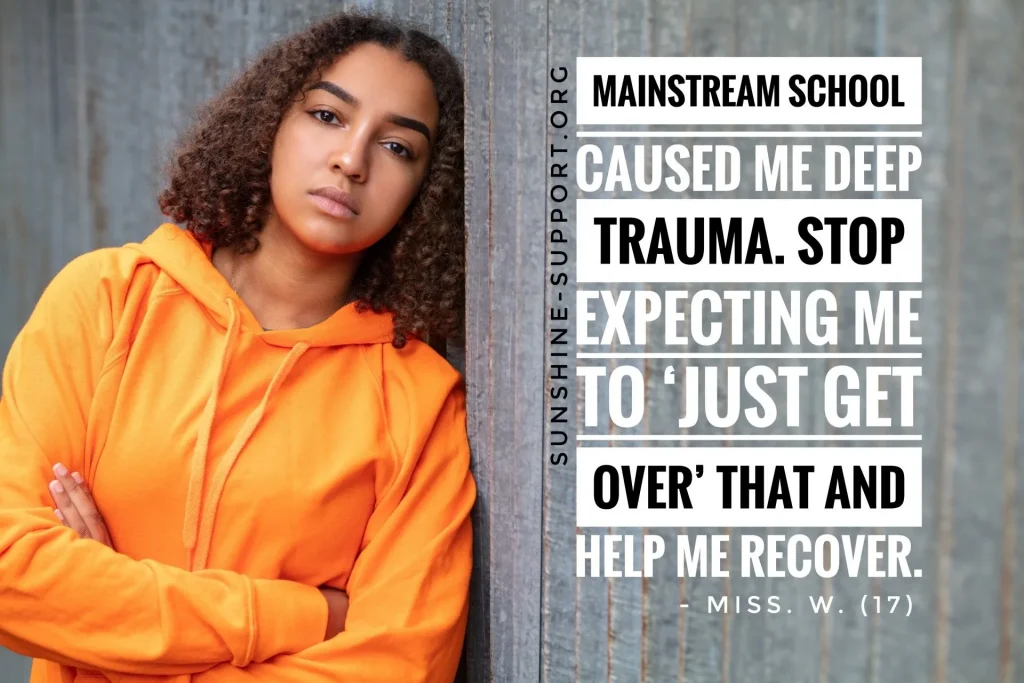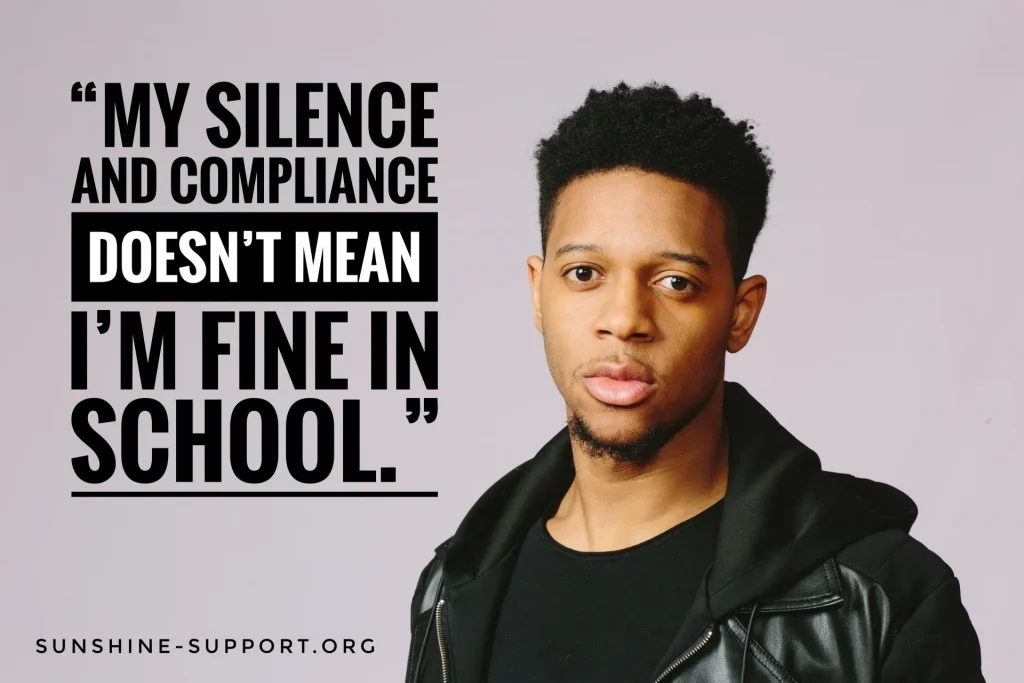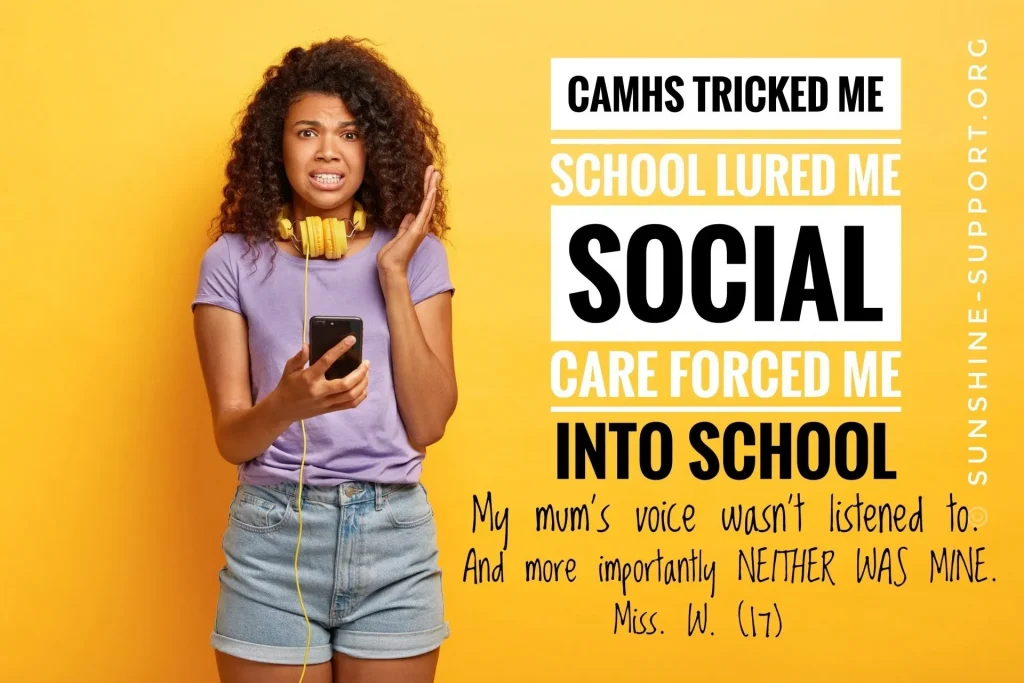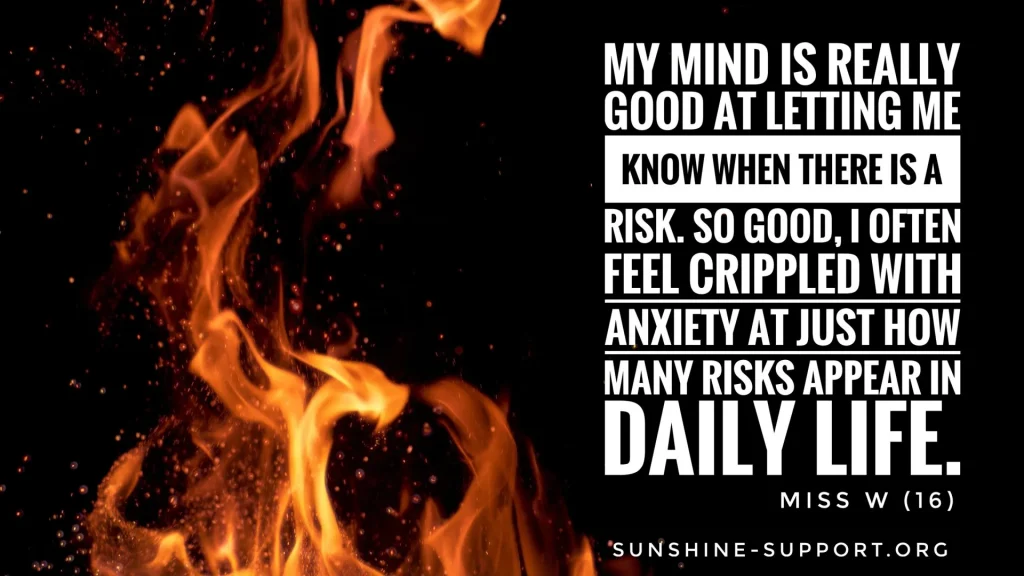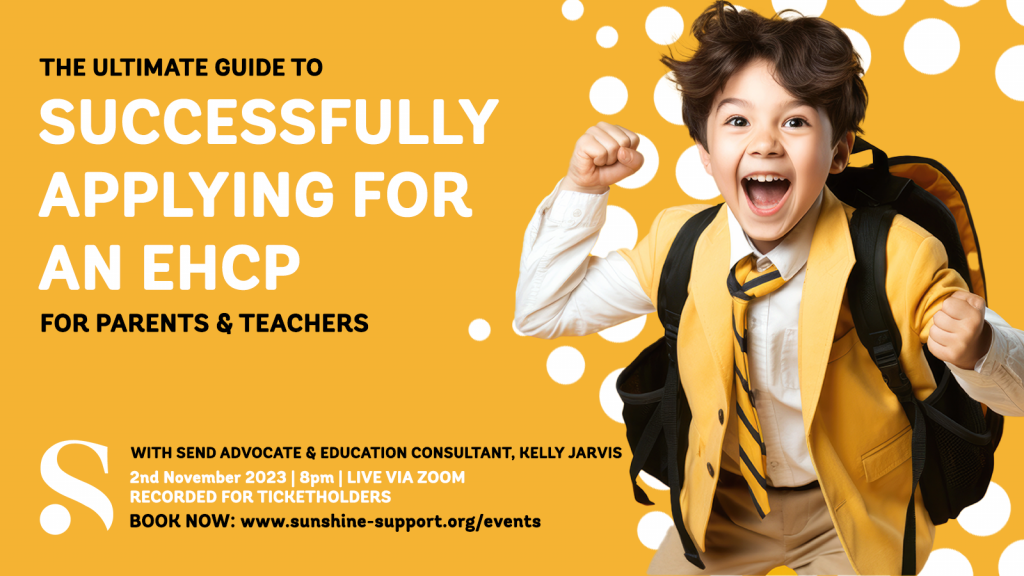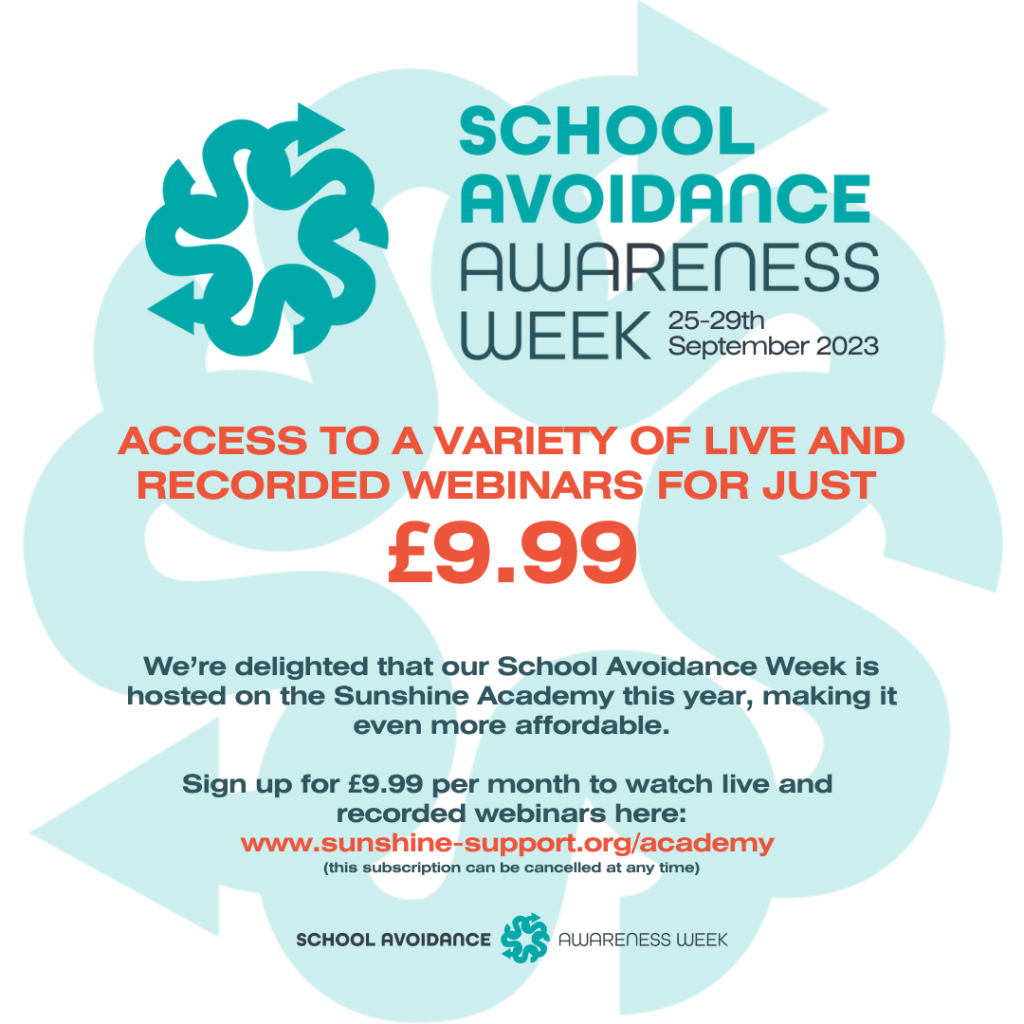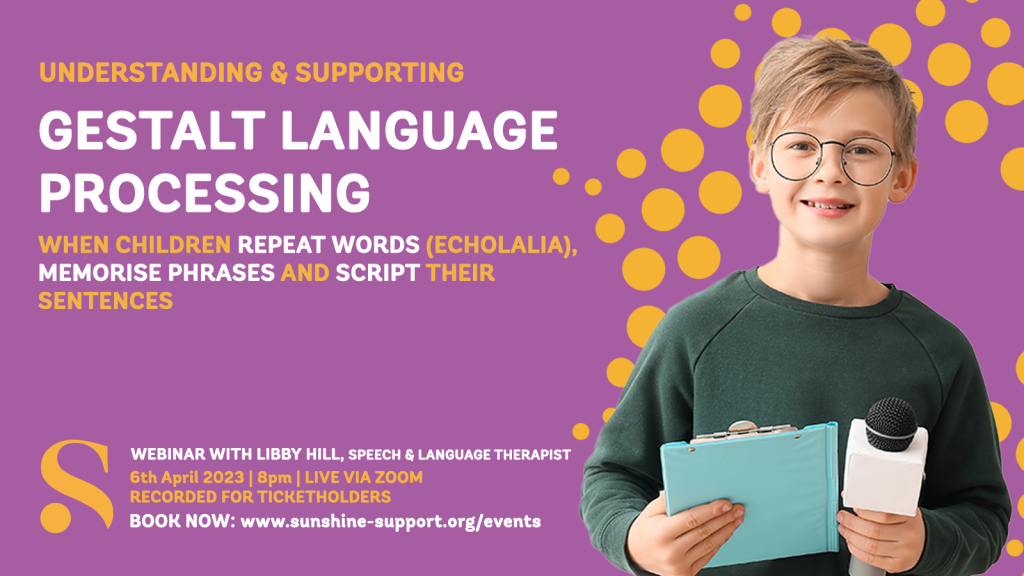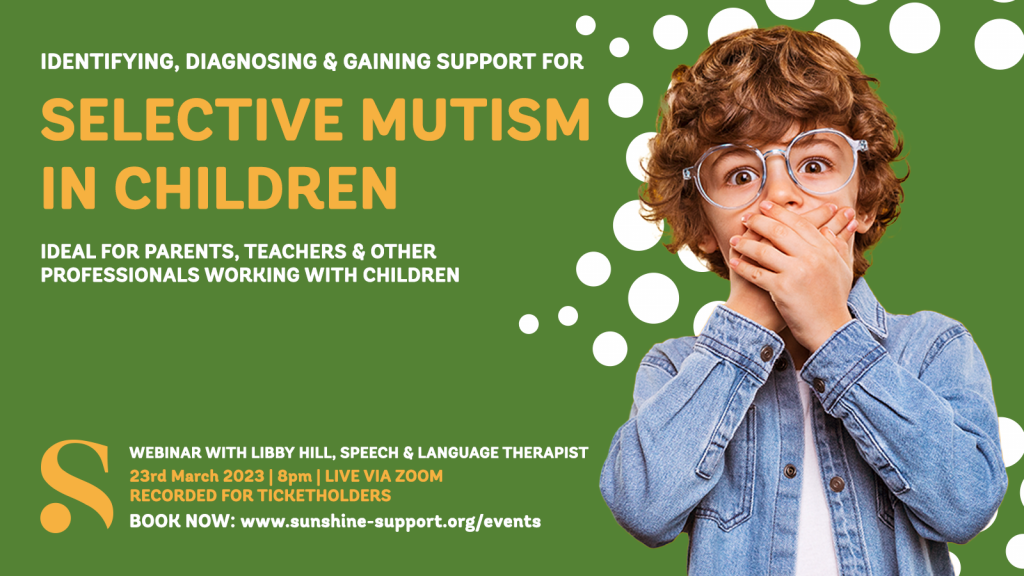School attendance difficulties are a huge concern that is widely misunderstood, how can we start to change that narrative to help the learner long-term, and ease the stress of everyone involved?
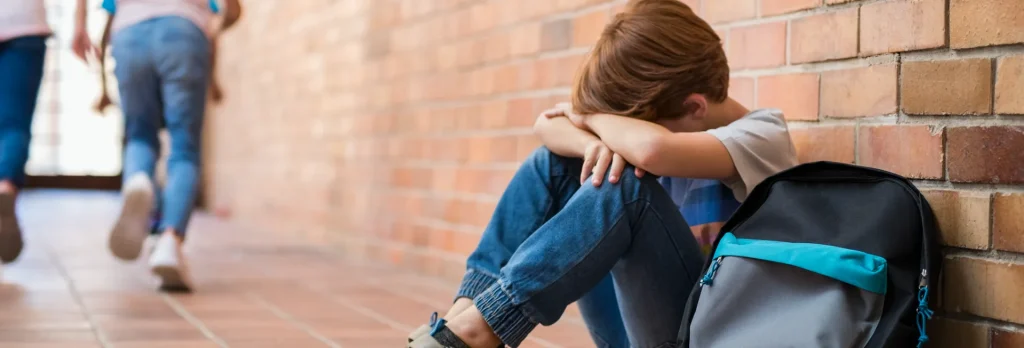
“School refusal” is fast becoming one of the most challenging areas of education, health and care for children and young people. Parents are put under pressure to ensure their children attend school, whilst professionals seldom have expertise in “school refusal” and, by default, calling education welfare officers or threaten fines.
I have written this article as an introduction to school attendance, anxiety, trauma, the recovery and planning for the future. I provide alternative ways of approaching these difficulties in simplistic term sand include reference points for your future (more in-depth) reading at the end.
WHY DO CHILDREN STRUGGLE TO ATTEND SCHOOL?
There is much more to “school refusal” than meets the eye.
Under no circumstance should it be ignored; it should ALWAYS be explored.
Often, anxiety is at the root and it’s important to note that anxiety is much more than being ‘a bit scared’. Anxiety can be incredibly debilitating with some people describing it as ‘crippling’. Left untreated, it can lead to much more including Generalised Anxiety Disorder or Selective Mutism (to name but two).
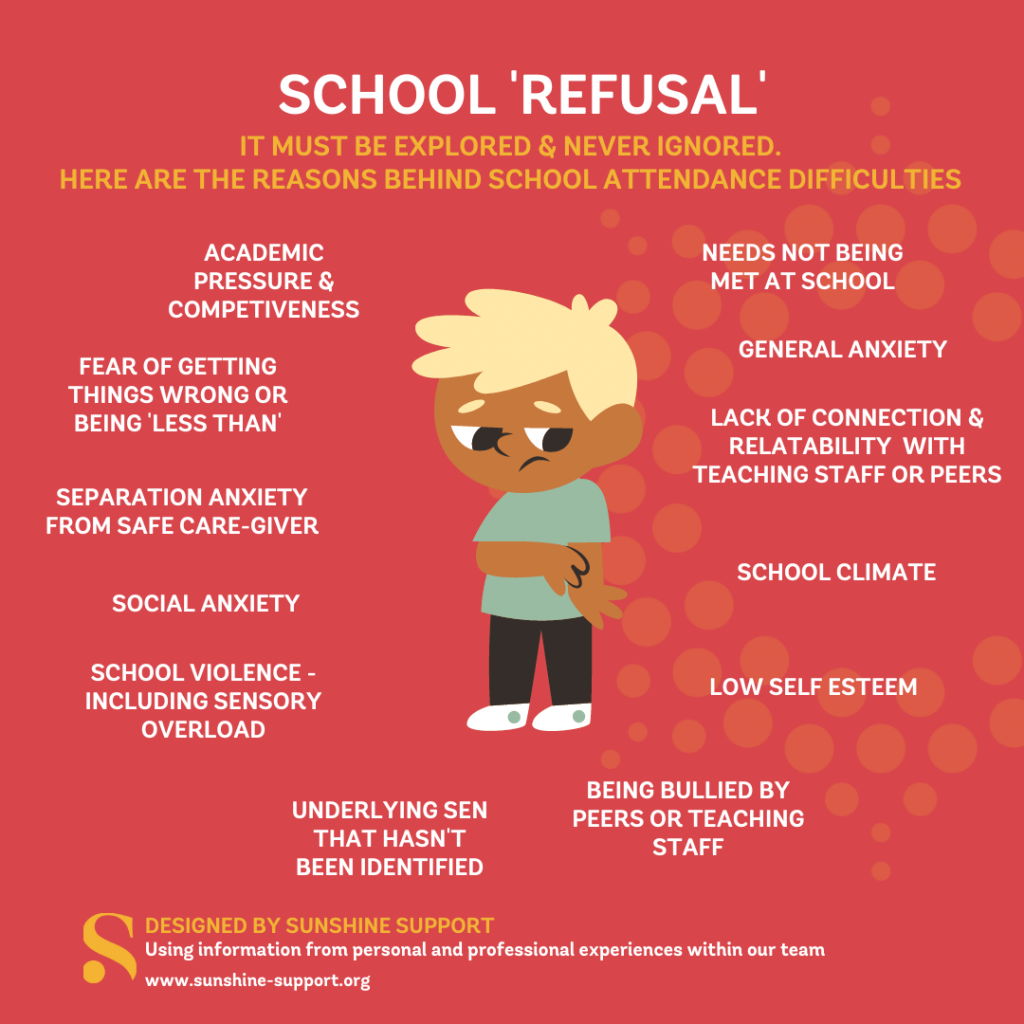
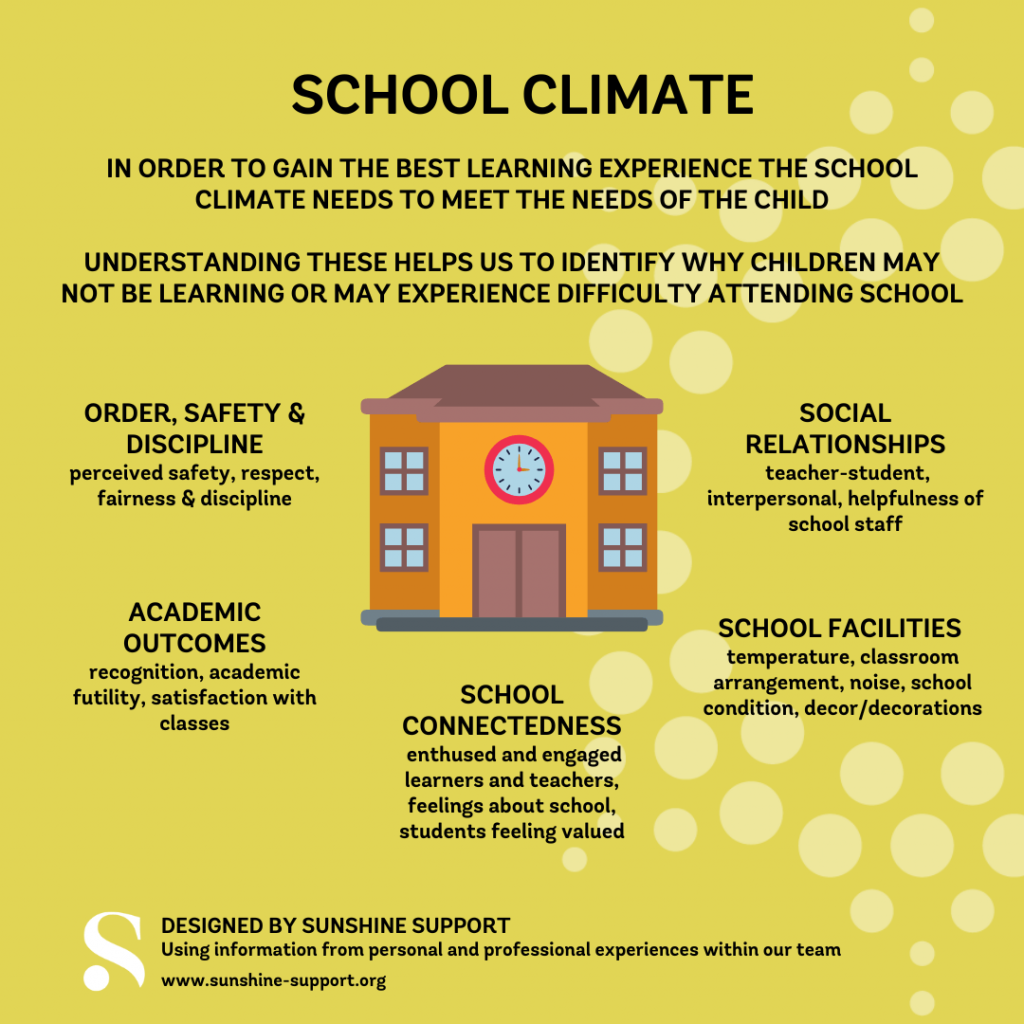
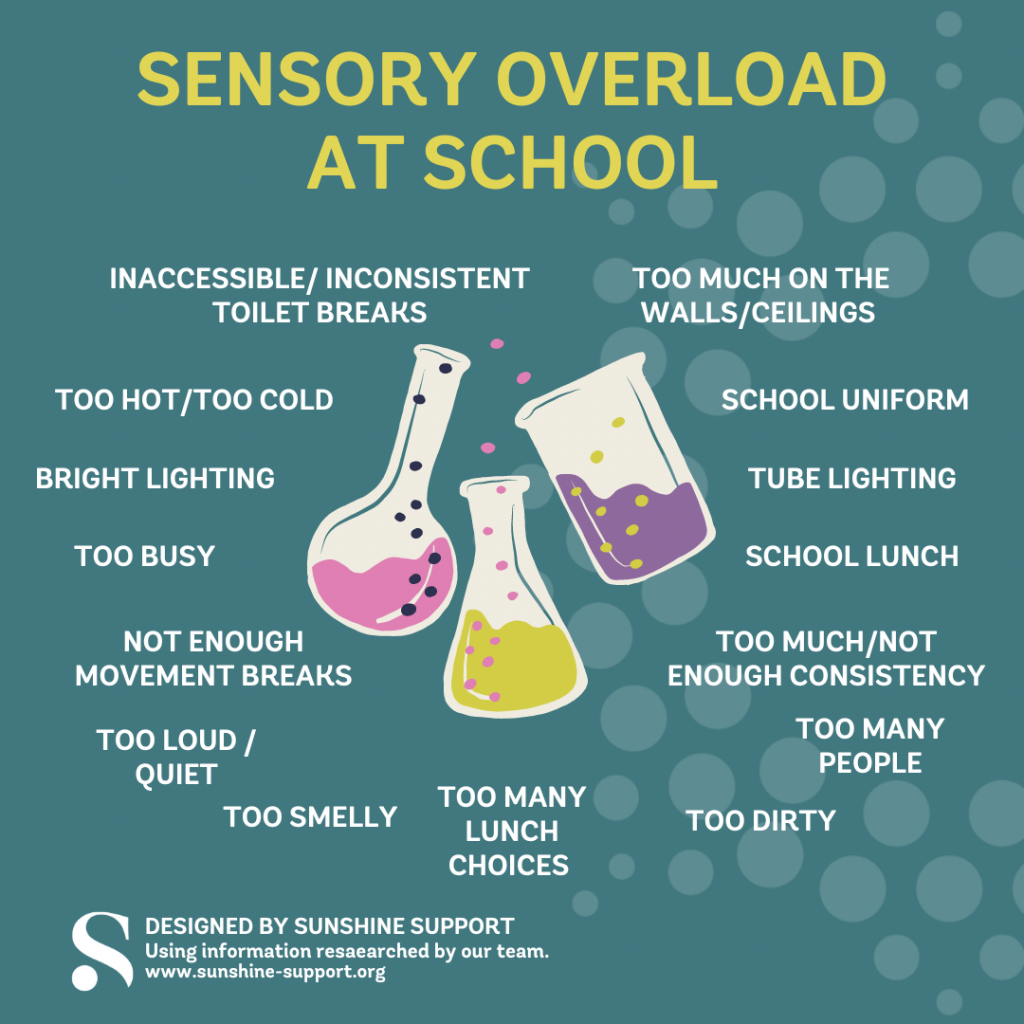
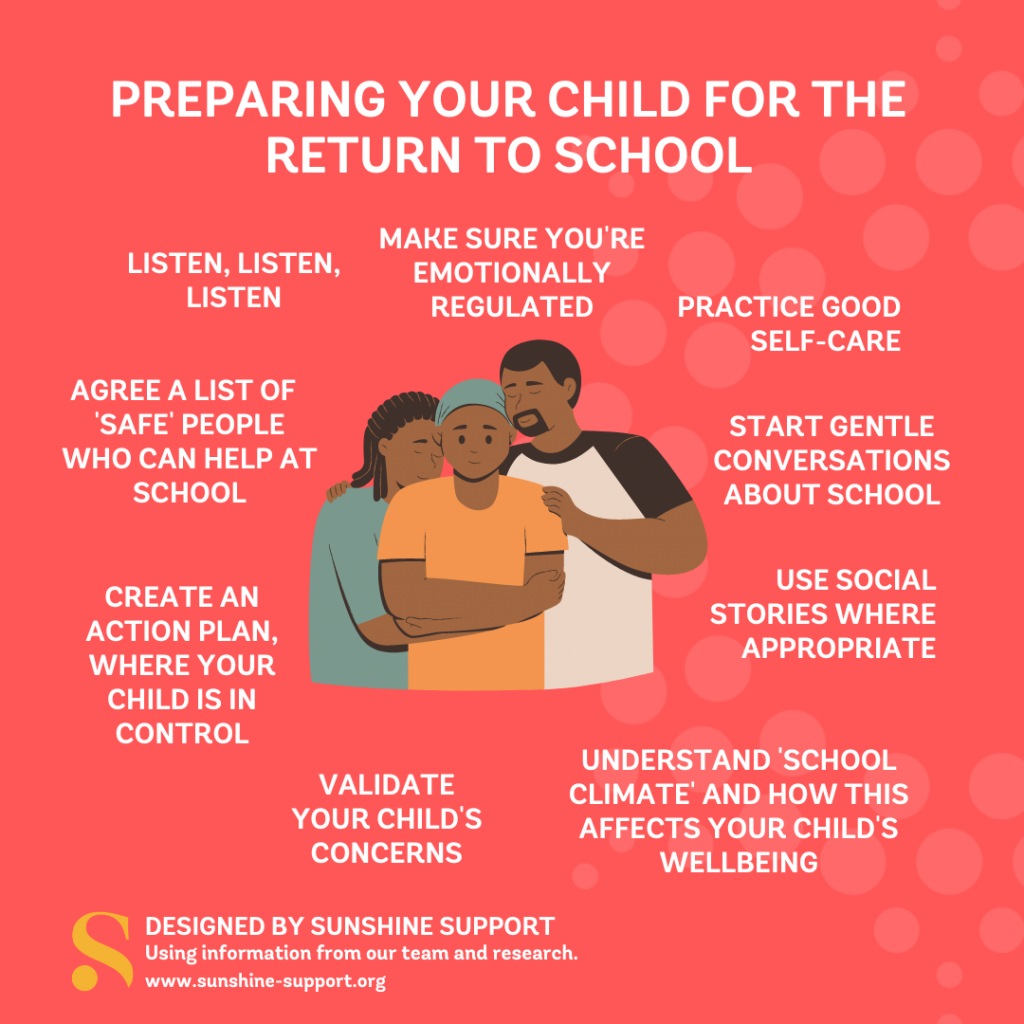
Can’t attend, not won’t attend…
We must flip the narrative of “school refusal”. School refusal is the assumption that the child/young person is making a willing decision to not attend school; that the child has control over this decision and by doing so is causing a great inconvenience to all stakeholders (parents, teachers etc).
What if we changed the way we think about this, and actually saw it for what it is? Instead of saying the child/young person WON’T attend school (and thus refusing/actively avoiding) we should be saying they CAN’T attend. After all, if they had a physical illness that prevented them from going to school you wouldn’t be saying they’re willingly not attending or refusing, would you?
Blame Culture and Misconceptions
There is a growing culture of child blame for school attendance difficulties in education currently. In fact, blame gets thrashed around… And is never helpful. We hear frequently that “the child is to blame”or “the parents are to blame” or “the school is to blame”.
It’s time to put an end to this blame culture and spend that energy on taking time to understand what is going on in order to SUPPORT the child, their family and the educators.
Another common misconception is that the child ‘MUST’ have PDA (Pathological Demand Avoidance). We hear this frequently and often it is used as a reason behind any form of avoidance. There is much more to PDA than this, and we have included resources below to provide more information.
How our brain assesses risk and responds to it…
It’s important to note, that children do not simply ‘refuse’ or ‘avoid’ school (or anything else for that matter). Something(s) have to happen in order to force them into disengagement.
This could be one or a series of memorable events (an accident or bullying, for example) or it could be a series of events that are not recalled by the child (daily sensory overload, for example). Likewise, they may or may not have been witnessed by another person too. The unmemorable or unwitnessed events are what really causes the confusion and discrepancy amongst stakeholders and can often be the reason behind fractured relationships between home and school.
The term COMPLEX/DEVELOPMENTAL TRAUMA is used to describe these events. Parent soften fear the word as it implies their child has come to deliberate harm, but that is not the case. We can’t always get it right, even if our intentions are absolutely ethical and well-meaning(and in some cases text-book perfect!).
One sign of trauma is disengagement and avoidance, another is over-compliance – both signs that a child is fearful. When a child’s trauma response is to disengage, it shows us that they are protecting themselves from future harm in situations that they have felt traumatised in before.Over-compliance works similarly in that a child is fearful of coming to harm again, and so their trauma response is to do what is asked of them to ensure the adverse experience doesn’t happen again. There are, of course, other signs including ‘challenging behaviour’ whereby the child’s trauma response is to communicate in a way that is seldom understood or correctly interpreted by the adults around them.
Trauma is an enormous area of mental health that we will be writing more about in future, and we will always offer workshops on this very topic too. But for now, let’s focus on how we (as parents and educators) help our children to recover so that they feel able and ready to learn again.
We must remember that when our brains risk-assess environments/objects/people etc and establish we are under threat (rightly or wrongly) it can trigger the fright/flight/freeze/fawn response that we hear about so frequently in our webinars.
Simply put, when our brain believes we are at risk or under threat it can prevent us from making strategic rational decisions and can often go into ‘survival’ mode.
So, how can we help children and young people who experience school attendance difficulties?
Trauma responsive parenting used co-productively with trauma responsive educating is absolutely vital for children who struggle to attend any part of their learning.
The onus is on all the stakeholders to step up and make this happen, but fundamentally the loudest voices leading the work should be those of the child and their advocate (often parent/care giver).
The 6Rs of Trauma Recovery
Attachment and connection form major parts of the healthy response we have as adults to a child who has experienced trauma. Bruce D.Perry (professor of Psychiatry and Behavioural Sciences, and a hugely inspiring researcher and published writer of trauma) developed the 6Rs of Trauma Recovery(he later added a 7th in social conversation!)…
1. Relational – the relationship must be familiar and safe.
2. Relevant – the communication must be age appropriate and relevant for the situation
3. Repetitive – the connection must be patterned, so expectations are clear and both sides of the connection are confident in the other party
4. Rewarding – it must be fun and pleasurable, not sterile and ‘forced’
5. Rhythmic – there must be a resonance, with neural patterns (walking, dancing, singing, breathing…)
6. Respectful – it’s essential that respect is paid to the child, their family, heritage, core beliefs and culture
7. (Bonus one) Reciprocal – a hugely important part of every-day life: reciprocity. It’s a two-way process.
In order to see an improvement in how the child experiences life, their engagement, mental health and self-esteem then we need all of the above to be working together in all settings.
As you can see, co-production and everyone ‘reading from the same hymn sheet’ is absolutely VITAL.
Vital Next Steps…
Using the 6Rs as the root of everything you do from hereon, here are some helpful ways to manage and support school attendance difficulties… It’s important that all three (short, medium and long term goals) are started together and continue to take place. Each is as valuable as the next, and absolutely vital in the process.
· Don’t force the child back into school (not even on a part time basis). EVER.
· Do not punish or shame the child.
Once we have established this, along with ensuring no one is to blame, then we can get to work on the child-led action plan. Autonomy is key, within clear safe boundaries of course (giving options is always a good tip!). The plan should include ALL of the following from the start, they are designed to be used together.
1. Short term: How can you support the child through today, this week, this fortnight? How can you help them recover and feel in a place where they’re ready to communicate to those safest to them again?
- Any initial calming and recovery must be done by their safest people (parents/care-giver, usually). Take direction from a trauma therapist if you can (we can recommend one if you’d like, just get in touch).
- It’s essential you record that your child is too unwell to attend school with your GP. They may or may not choose to see you face to face, but it’s very important you explain your child’s medical difficulties and why that/they are preventing your child from accessing education. Sometimes you can get a note from your GP to cover you for the short term.
- Check your school’s attendance policy and ensure you adhere to that as much as possible. If you want a second opinion on their policies remember we are here.
2. Medium term : How can you support the child through the next few months or terms?
- What collaborative approaches (with the 6Rs at the heart) can you take with the school to ensure the child is getting the most out of their learning and social life without re-traumatising or emotionally harming them.
- Remember that no matter how good the ideas for reintegration into a form of learning sound, the child has to guide you. Child-centered approaches are essential.
3. Long term . If the current arrangement is not working, you need to understand why and get a long term plan in place to prevent long-lasting mental health damage.
- Get a firm prescriptive plan to ensure the child’s needs are met. This should be done by way of an EHCP (England) orStatement of Special Educational Needs (Wales).
- The child’s needs should be thoroughly assessed (through the above process) by qualified practitioners and a thorough description need should be ascertained, followed by a quantified and specified provision (with desired outcomes).
Establishing Needs
Assessments might include mental health, speech and language, occupational therapy (sensory) and educational psychology depending on the child’s presentation. It’s important that all professionals have experience (and qualifications if possible) in supporting/treating/working with children and young people who have experienced trauma.
To request assessments please click here .
If you require help with any part of this process (including advocating for the child, designing reasonable adjustments and the return to learning, mental health assessment and support, applying for EHCP/statements) please get in touch
The Author – Chrissa Wadlow
This blog was written by our founder Chrissa Wadlow , a neurodivergent mum of 4 neurodivergent children and keen researcher of trauma and mental health within children and young people with SEND. Chrissa is currently studying towards a Masters Degree in Autism andSEN/ALN at the University of South Wales (with specific major in Child andAdolescent Mental Health, attachment and trauma).
First edition blog: November 2020
Updated: August 2022
Follow Sunshine Support’s Podcast: Sip Of Sunshine
Did you know that Sunshine Support also hosts a Podcast? In our latest episode, you can join Kat as she chats with Sunshine Supports founder Chrissa, plus our head of advocacy Kelly. This time the team are discussing School fines, Senco’s butting heads with teachers and schools not sticking to EHCPs.
To hear the full uncut episode join our Sunshine Academy!
With over 100 webinars and course covering a large part of the SEND journey, it’s well worth signing up.
Follow us over on Youtube and Spotify.
Recommended further reading and research
Polyvagal Theory andthe “Safe and Sound Protocol” – Steven Porges
BruceD Perry – 6Rs of Trauma Response
Attachmentand Education – Dr Carmel Conn
ACEs– Adverse Childhood Experiences
TheTrauma Continuum – Betsy de Thierry
Memes written by young people, to help with acceptance and awareness.
Please feel free to download them and share, all we ask is that you don’t crop them and ensure we (Sunshine Support) are credited.
